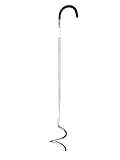SHTFDad may collect a share of sales or other compensation from the links on this page.
Amending the soil with compost, the gardener’s “black gold”, is one of the best ways to invest in the garden before spring planting.
The good news is that learning the composting process is one of the easiest and most cost-effective ways to boost soil!
What is Composting?
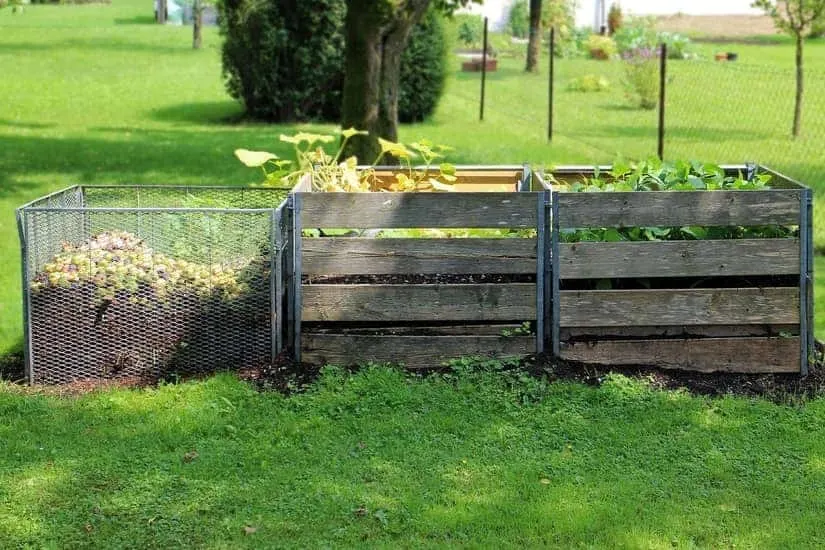
Composting is simply Mother Nature’s way of amending the soil by breaking down organic materials she already produced and revitalizing it with the necessary nutrients for another growing cycle.
It is also the most environmentally friendly way to reduce waste.
So how does composting work and what are the best ways to start composting at home?
The Composting Process
- Storey publishing
- Language: english
- Book - let it rot!: the gardener's guide to...
Just how does nature take organic waste and convert it into a natural fertilizer? A good compost pile will consist of materials such as shredded newspaper, leaves, fruits, vegetables, kitchen waste, and even wood chips.
These materials are broken down by the soil’s microorganisms, which essentially devour the material’s nutritious nitrogen, phosphorous, and potassium. These nutrients are soaked into the soil’s makeup, resulting in a rich, natural fertilizer.
The composting process also requires oxygen and water. This provides aerobic respiration, which aids the soil as it breaks down waste into fertilizer. During this respiration process, the soil absorbs oxygen and produces carbon dioxide, which produces heat.
Temperatures can exceed 100 degrees Fahrenheit during aerobic respiration. Water is another necessary component of composting. The microorganisms in the soil that break down organic waste require water to thrive.
Soil, moisture, and air can work together to break down the compost into a pile of nitrogen, phosphorous, and potassium-rich fertilizer that is both free of harmful chemicals and easy to make at home.
How Long Does the Composting Process Take?
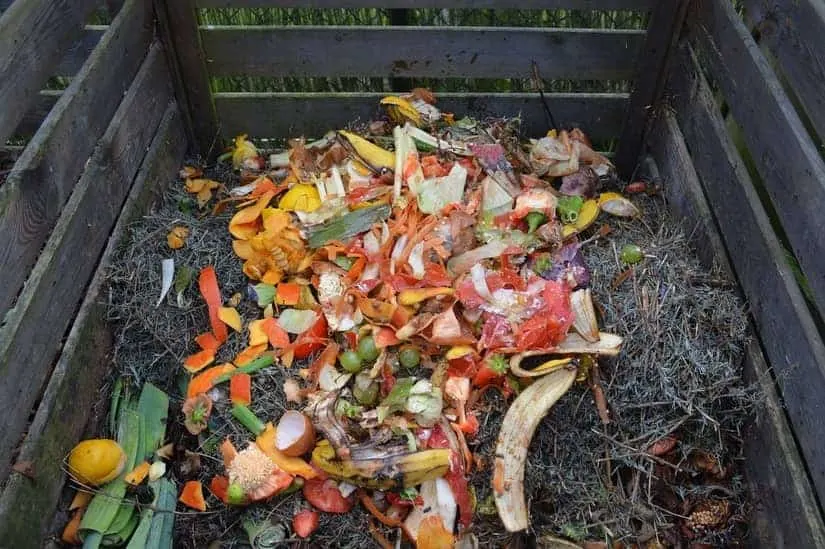
For the composting process to complete itself unassisted, it can take several months (at least three). With a little effort and the right materials, though, the process can be a little less tedious.
Check on the compost pile occasionally, turning it with a compost aerator, shovel, or rake to let in more air.
Also, make sure the pile has an appropriate amount of moisture. While water is a necessary ingredient for compost, the materials should not be soaking wet. Just enough for the bacteria and microorganisms to thrive.
To speed up the process, consider investing in a composting bin. It mixes the materials and maintains the appropriate temperatures in order to break down the compost.
A good composting bin can produce nutrient-rich fertilizer in as little as two weeks. A composting bin guide can help you choose the right one.
How to Compost at Home
- MADE IN THE USA - Handcrafted in Tucson, Arizona,...
- EASY, FAST, AND FUN TO USE - Twist clockwise into...
- HIGHLY DURABLE - Made of solid, thick 3/8 inch...
As we mentioned before, composting is one of the easiest ways to amend garden soil at home. Particularly if you are composting in small spaces.
With some organic materials, a designated space, and a little time, gardeners can make their own “black gold”.
Here’s how to get started:
Collect Organic Materials
Put all those kitchen scraps to good use and cut down on waste by tossing them into a composting pile. Eggshells, coffee grounds, tea bags, fruit rinds, potato skins, and any other food scrap can be recycled into fertilizer.
That stack of old newspapers? Shred them and put them in the pile, too. Old leaves that have been raked and grass clippings from the lawn make great additions to compost, too.
Designate a Space
Many gardeners like to set aside a corner of the yard or garden to use for composting. Just toss kitchen waste, leaves, and grass clippings into a pile throughout the fall and winter months. Then shovel it throughout the garden before spring planting.
Sometimes, it can be a good idea to use a bin and keep the materials contained. This can be as simple as a plastic container with a lid or a wooden crate. Just remember, compost needs moisture and air to break down materials into fertilizer.
Consider drilling several holes in the top of the bin to provide ventilation. Also, mix the materials once or twice a week – or whenever new materials are added to the bin – to increase airflow.
Add a little water to dry materials, such as wood chips or newspaper to keep the contents moist.
Let Nature Work Its Magic
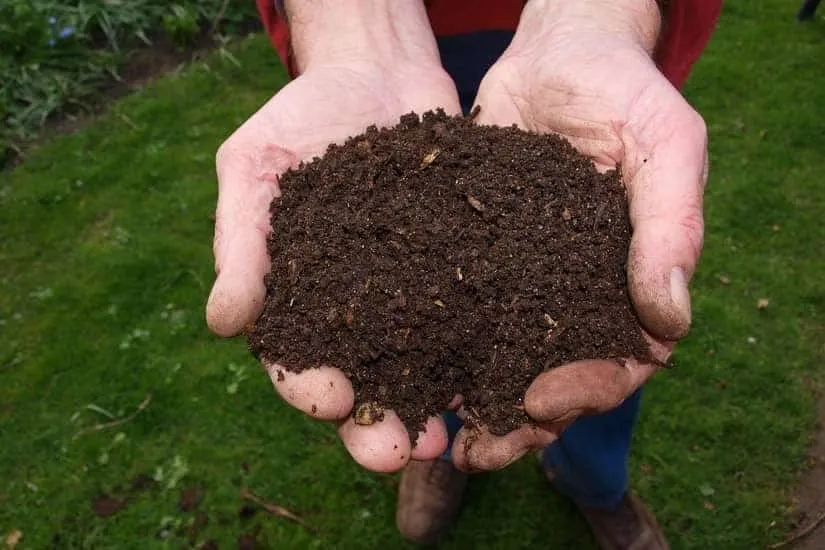
In a few months (or weeks), the organic ingredients will have been converted into “black gold” fertilizer.
As we mentioned before, sometimes commercial composting bins can be a good way to contain composting materials. This can also speed up the process.
Other Considerations
Making compost is an easy investment in the garden, but there are a few ways to ensure success before getting started.
First, start with a big collection of materials. It may seem like there is too much mass in the compost pile at first, but that large mass will break down into a much smaller volume of fertilizer.
Beginning the process with a small pile of materials will result in an even smaller amount of fertilizer. Think big!
Second, diversify the materials in the compost pile. A pile of just leaves is going to remain a pile of just leaves for a long time.
Likewise, a pile of just kitchen scraps is just going to attract animals and get smelly. Having a variety of materials speeds up the composting process. Microorganisms break down the different ingredients and absorb their nutrients. This will also result in a more nutrient-rich fertilizer.
Third, remember to keep the compost moist. Usually, compost will not require much maintenance. But during especially hot or dry weather, or after incorporating dry materials like leaves or newspaper, it might be necessary to add some water.
The bacteria responsible for breaking down the compost needs moisture to thrive, so check occasionally and make sure things do not stay too dry.
Conclusion
Composting is the best thing a gardener can do to amend the soil naturally before planting. Do not forget this environmentally friendly way to make fertilizer, while cutting down on household waste, as well.
Start putting those kitchen scraps, grass clippings, leaves, and old newspapers to good use, and get that compost pile started!
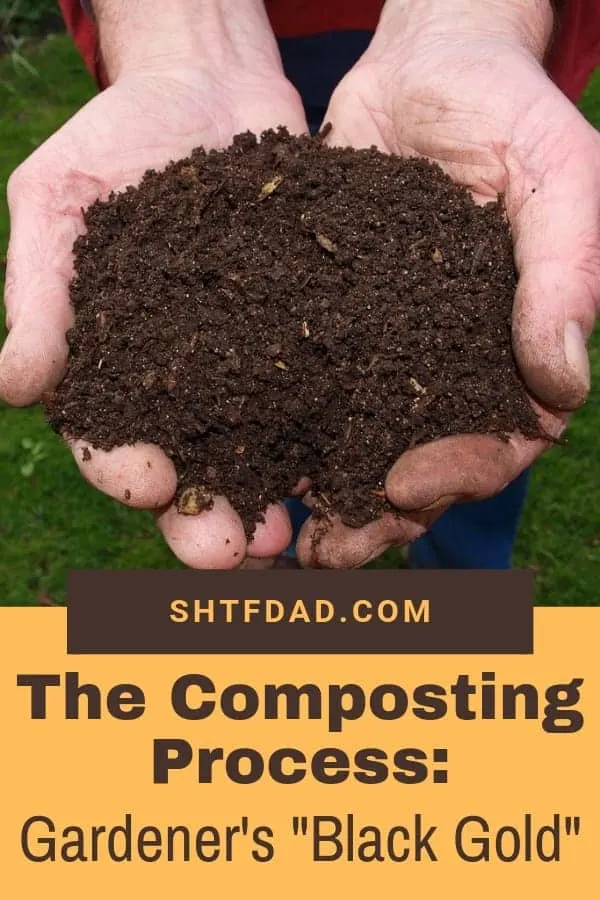
Resources:


